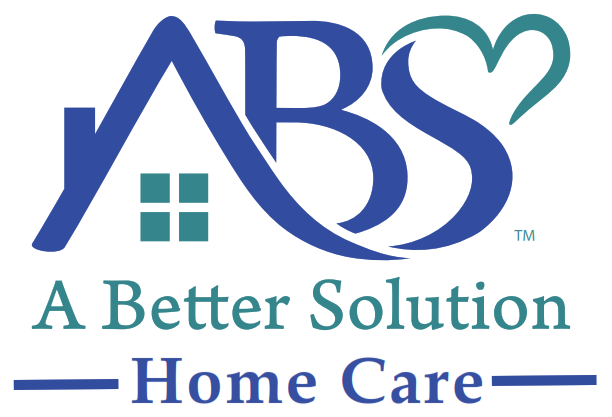
How to Find the Best Respite Care for Your Loved One: Costs, Options, and What to Expect
09-26-2025
Respite care is a vital service that provides temporary relief to family members who are responsible for caring for aging loved ones. Whether it’s for a few hours, a few days, or longer, respite care ensures seniors receive professional, compassionate attention while caregivers rest, recharge, or attend to other responsibilities. Choosing the best respite care is not only about giving caregivers a break. It’s about safeguarding the health, dignity, and happiness of seniors while ensuring family caregivers remain resilient and supported. The need for quality respite care is particularly evident in the United States, where more than 65 million adults serve as family caregivers and over 60% report symptoms of burnout ranging from stress to exhaustion. These figures highlight the urgency for reliable respite solutions that balance affordability, flexibility, and trust.
In this guide, we’ll explore the reasons families turn to respite care, the key features of quality providers, types of respite care options available, cost considerations, evaluation tips, and how A Better Solution Home Care makes this important service more accessible to families.
Why Families Use Respite Care
Families turn to respite when balancing caregiving with life becomes overwhelming. The best respite care helps protect both the caregiver’s health and the senior’s quality of life. While the benefits are significant, many families also face fears and misconceptions that hold them back from using respite services.
Preventing caregiver burnout
Best respite care is one of the most effective forms of caregiver burnout support, allowing families to step away without guilt. Research shows that short breaks reduce stress, improve caregiver resilience, and strengthen family relationships.
Restoring caregiver health and balance
Whether it’s attending medical appointments, catching up on sleep, or enjoying personal time, caregiver burnout support resources recommend scheduling regular respite to protect the caregiver’s physical and emotional health.
Benefits for the care recipient
Respite also improves the senior’s experience. Social interaction, engagement in activities, and a change of scenery can boost mood and reduce isolation, thus making respite care for seniors especially important.
Challenges families often face
Concerns about cost, trust, and adjustment are common. Families may worry that their loved one won’t accept outside care, or that professional services are too expensive. Understanding these fears helps in finding solutions, from family caregiver relief programs to affordable providers.
Myth-busting: respite ≠ abandoning your loved one
A common myth is that seeking respite means “giving up.” In reality, temporary caregiver support is about making caregiving sustainable. By protecting the caregiver, best respite care ensures ongoing quality care for the loved one.
Key Features to Look for in Respite Care Providers
The quality of respite care can vary greatly, making it vital to know what sets the best respite care apart. Beyond basic availability, families should look for professionalism, compassion, and safety standards that build trust and confidence.
Qualifications, training, and background checks
Agencies should verify credentials, provide thorough training, and conduct background checks. This is especially critical when arranging respite care for dementia patients, where specialized skills are needed.
Compassion and interpersonal fit
Caregiving is personal. A caregiver who understands, listens, and engages kindly can make a major difference in a senior’s comfort.
Flexibility in scheduling
Good providers offer adaptable options such as a few hours a week, weekend blocks, or even overnight respite care. For continuous support, families may also require 24 hour respite care for seniors.
Safety and environment
If choosing in-home respite care services, ensure safety checks are performed, including fall-risk assessments and medication reviews. For facilities, verify accessibility, cleanliness, and emergency procedures.
Communication and oversight
Regular updates, care notes, and supervisor visits provide peace of mind. Families should feel confident that the provider is transparent and accountable.
Licensing, insurance, and liability protection
Confirm the agency’s licenses, insurance coverage, and accreditation. These protect families and ensure the agency meets professional standards.
Types and Modes of Respite Care Options
Understanding the different care settings is essential when deciding on the best respite care for your loved one. Families in the U.S. have access to multiple models of respite, each offering unique benefits and challenges. The right choice depends on the senior’s health needs, the caregiver’s schedule, and the level of supervision required.
In-home respite care
A trained caregiver provides assistance, companionship, or support right at home. This option, often searched as respite care at home near me, allows seniors to remain in familiar surroundings.
Adult day programs
Adult day care programs give seniors structured activities, meals, and social interaction in a safe environment during the day. They are ideal for families who work or need daytime relief.
Short-term facility stays
Short-term elderly care in a residential community offers around-the-clock supervision, meals, and medical oversight. This option is helpful when caregivers are traveling or need extended breaks and require best respite care.
Emergency and unplanned respite
Families may face unexpected events. Some agencies provide urgent support, sending caregivers on short notice when crises arise.
Hybrid and part-time models
Blended approaches combine part-time home care services with community programs. This flexible arrangement balances cost, familiarity, and social engagement.
Costs & Payment / Financial Planning
Cost is one of the biggest concerns for families considering respite. While the price varies, the best respite care providers explain expenses clearly and help families explore payment support options.
U.S. cost benchmarks
- In-home care: $15–$40 per hour (average ~$35/hour).
- Adult day programs: $100–$120 per day (median ~$103/day).
- Short-term facility care: $150–$300 per day, depending on services.
Factors that affect cost
Geography, level of care, weekend/overnight needs, dementia support, and transportation can all impact pricing.
Insurance and public programs
Medicare rarely covers respite. However, Medicaid waivers, VA benefits, and long-term care insurance sometimes offset costs. Families should also research caregiver burnout support and solutions offered by local nonprofits.
Why respite can be more affordable than institutional care
Weekly temporary in-home senior care or day program visits can be significantly less costly than long-term residential placements, making respite a cost-efficient solution.
Cost-saving strategies
Families seeking affordable respite care options should explore bundled hours, community subsidies, or nonprofit programs. Always review contracts for hidden fees and clarify billing terms upfront.
How to Evaluate & Choose the Right Provider
Deciding on a provider can feel overwhelming, but having a process makes it manageable. The best respite care providers will stand out through transparency, reliability, and fit.
Build a checklist: Compare agencies on availability, flexibility, pricing, and the ability to create personalized senior care plans.
Ask key questions: Interview agencies about training, backup caregivers, supervision, and cancellation policies. A strong provider offering best respite care services welcomes these discussions.
Watch for red flags: Avoid agencies with unclear billing, poor communication, or no verifiable licensing.
Trial and transition: Start small with a trial session before committing. This approach helps seniors adjust gradually and gives families confidence.
Consider family dynamics: When arranging respite care for senior families, communication between siblings, spouses, and relatives ensures smoother coordination.
Review documentation carefully: Go through contracts to confirm cancellation rules, liability coverage, and service expectations before signing.
How to Prepare for a Respite Care Episode (Before, During, After)
Preparation is key to ensuring that seniors and caregivers both benefit from the best respite care.
- Before: Families should provide care notes, medication lists, and a daily routine sheet. Conduct a home walkthrough to highlight safety concerns, and pack comfort items if the care is facility-based.
- During: Establish a communication plan with the caregiver. Many families request check-in calls, text updates, or progress reports. Emergency protocols should also be discussed in advance.
- After: Families should review the experience with both the caregiver and the senior. Feedback helps adjust future visits and ensures the care plan continues to meet everyone’s needs. This process transforms respite care from a one-time service into a sustainable, long-term support system.
A Better Solution Home Care Edge
When it comes to the best respite care, A Better Solution Home Care stands out for its compassionate, flexible, and personalized approach. A Better Solution emphasizes a compassion-first philosophy, ensuring every caregiver understands the emotional as well as the physical needs of seniors. Our caregivers are thoroughly vetted, background-checked, and trained to provide both companionship and personal care. A Better Solution specializes in supporting diverse needs, from companionship to 24 hour respite care for seniors and elderly respite services.
What truly differentiates A Better Solution Home Care is flexibility. Families can choose from short shifts, weekend coverage, or ongoing care that adapts to changing needs. Each plan is a personalized senior care plan, tailored to the unique routines and health conditions of the senior. With consistent communication and a commitment to quality, families know their loved ones are safe, respected, and supported.
Finding the Best Respite Care for Your Family
Choosing the best respite care is about creating balance, ensuring seniors are well cared for while family caregivers have the time and energy to recharge. Far from being a sign of neglect, respite care is a powerful tool for preserving the health and happiness of both caregivers and seniors. At A Better Solution Home Care, we understand that every family’s journey is unique. That’s why our team provides customized care plans, compassionate caregivers, and the reassurance that your loved one is always in safe, capable hands. Whether you need a few hours of relief, overnight care, or ongoing support, we’re here to make the process seamless and stress-free.
You are not alone in this journey. Contact A Better Solution Home Care today to schedule a free consultation and discover how personalized best respite care can bring peace of mind and renewed strength to your family.
